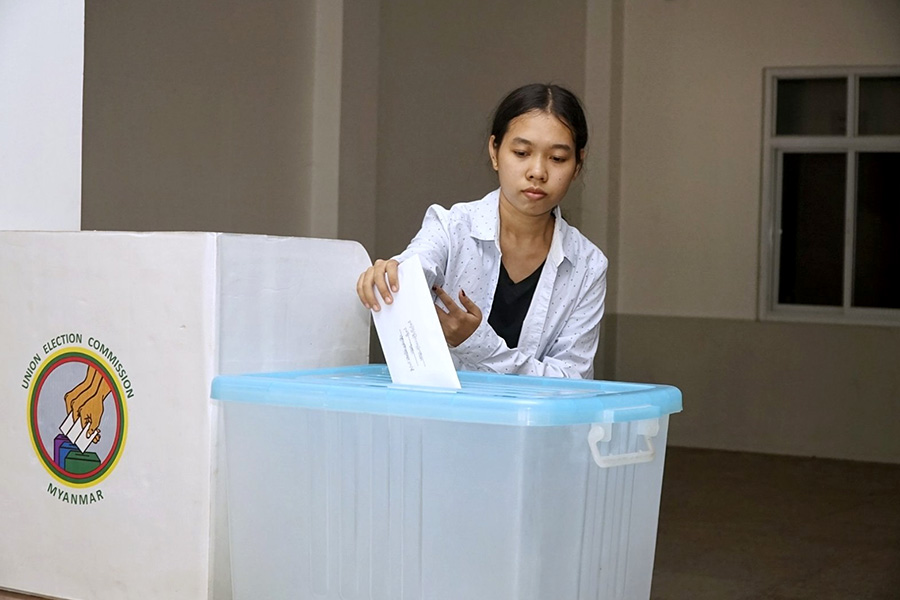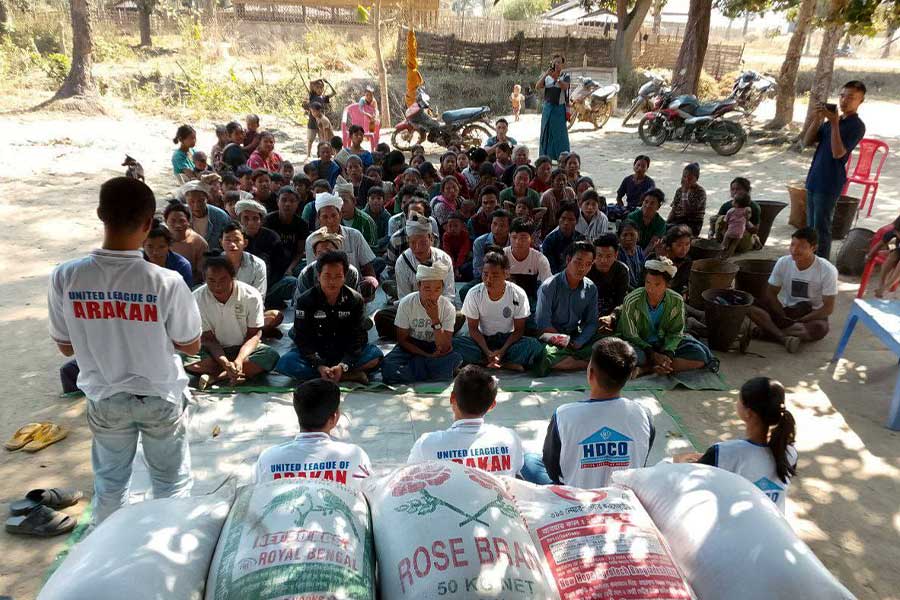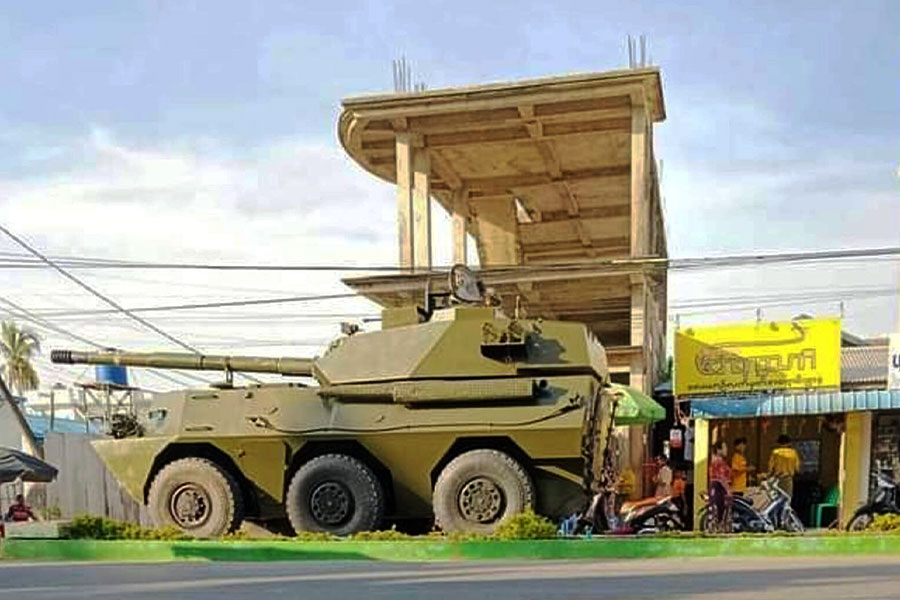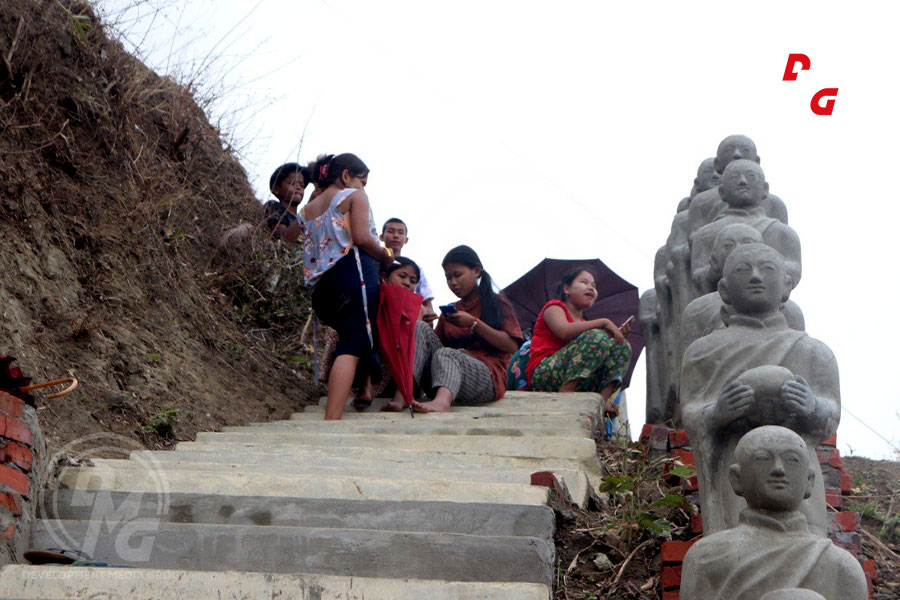- New Diplomatic Movements Between Bangladesh’s New Government and the Arakan Public Administration
- Junta claims over 24 million ballots cast in 2025 poll, cites strong youth turnout
- ULA expands HIV prevention, healthcare services for sex workers in AA-held areas
- Over 600 Mro villagers displaced in Maungdaw amid threats from ARSA, RSO
- Clashes continue in Sittwe as junta reinforces naval, armored deployment
Border traders unimpressed by junta’s easing of restrictions on export earnings
“There is not much difference as we have to deposit the money within one week. Things might be different if it were one month, and not just a week,”
07 Jul 2023
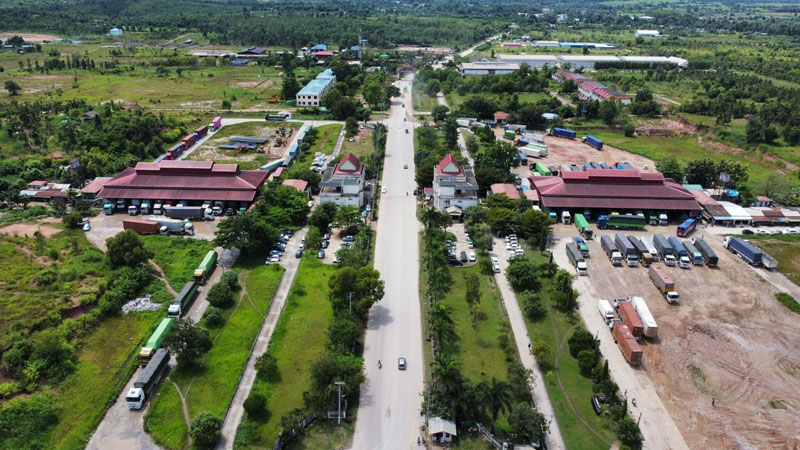
DMG Newsroom
7 July 2023, Sittwe
Exporters say the Myanmar military regime’s easing of a restriction that had required exporters to deposit their potential export earnings in local banks prior to their goods shipping is not likely to markedly improve the trade environment.
The Advanced Telegraphic Transfer (TT) system that introduced the restriction has been practiced for exports of beans and pulses, sesame and peanuts via the border trade since July 2022. The Trade Department eased it as of July 1, saying the move was intended to facilitate exports.
Merchants said the main problem facing them is not about paying into the banks in advance of their export earnings, but rather the requirement that 65 percent of export revenues be converted to the Myanmar currency at an official exchange rate of 2,100 kyats per dollar. The exchange rate in the market currently stands at around 3,000 kyats per dollar.
A regime announcement made on July 1 said the easing of the TT system means exporters must now show that they have received export revenues in their bank accounts within one week after shipment.
“There is not much difference as we have to deposit the money within one week. Things might be different if it were one month, and not just a week,” said a merchant from Mandalay who exports beans and pulses to China via the border.
Under the new regulations, companies that are three years old and older on July 1 need to pay a 20% deposit of the total export value to the Trade Department, and companies that are less than three years old need to pay 35%. Companies must put their export earnings into their bank accounts within one week of receipt, and only then will get their deposit returned.
“Easing of the restriction will not have a significant impact on the market,” said a merchant who exports corn to Thailand via the border trade. “We still have to pay the deposit, and have to convert our export earnings into kyats at the official exchange rate set by the Central Bank of Myanmar. So, it won’t make any difference.”
The Trade Department says exporters can use US dollars, Chinese yuan, Thai baht or Myanmar kyats to pay their deposits, according to the exchange rate in the market at the relevant border trade zone.




